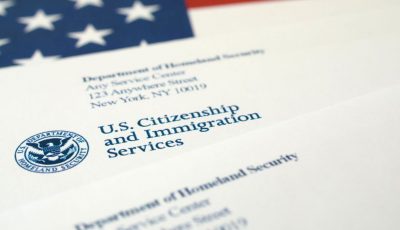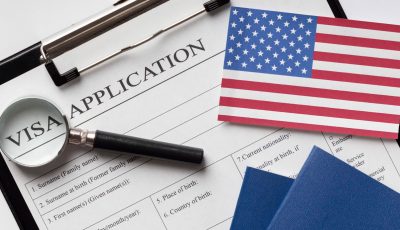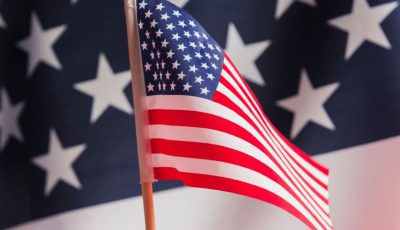USCIS modifies policy on touchback rule for CWs
Kilili, Rep. Yumul say it’s great news to employers, small businesses, foreign workers
In response to stakeholder feedback and disruptions by the COVID-19 pandemic, U.S. Citizenship and Immigration Services announced yesterday that it is modifying its policy on implementing the requirement that CNMI-Only Transitional Workers leave the U.S. for at least 30 days after two renewals of the CW-1 visa classification.
USCIS also reiterated that CW-1 long-term workers, as defined in the interim final rule (IFR), are exempted from the departure requirement, which is also known as the “touchback rule.”
In response to Saipan Tribune’s request for comments, Delegate Gregorio Kilili C. Sablan (Ind-MP), said the USCIS modification to the CW-1 departure requirement is good news for employers and of third country national employees.
“This modification is, as a matter of fact, the right interpretation of the Northern Marianas Workforce Act,” Sablan said.
The delegate said they knew in the drafting of the legislation that it is inconceivable for the Workforce Act to require the majority of workers to depart at almost the same time.
“It would be harmful to the Marianas economy. That would have been the result of the USCIS earlier rule,” Sablan said.
At yesterday’s House of Representatives’ regular session, Rep. Ralph Yumul (R-Saipan), who chairs the House Special Committee on Federal Assistance and Disaster Related Funding, said the modification of USCIS’ policy pushing back the touchback provision for additional two years is “great news for a lot of small businesses here in the CNMI.”
Yumul said the employers can still be able to process the CW-1 petitions and contract workers will not have to depart and they remain in the CNMI for additional two years.
Yumul said it’s great news as it brings a sense of security for a lot of businesses.
The lawmaker is thankful to Sablan for pushing that modification.
House Federal and Foreign Affairs chair Rep. Luis John Castro (Ind-Saipan) said his committee worked together with Sablan in addressing the touchback matter.
“We get some correspondence in regards to this matter,” Castro said.
In modifying its policy, effective immediately, USCIS will only consider CW-1 petitions approved on or after June 18, 2020, when they apply the requirement that certain CW-1 nonimmigrant workers depart the CNMI for a period of at least 30 continuous days.
USCIS cited an example that any alien approved on or after June 18, 2020, for a one-year CW-1 validity period beginning Oct. 1, 2020, will be eligible for two more consecutive petition validity periods after the first period of validity expires on Sept. 30, 2021.
Previously, USCIS counted all consecutive petition validity periods, even those approved prior to June 18, 2020, when determining which CW-1 nonimmigrant workers are subject to the temporary departure requirement.
USCIS said although the DHS stated in the IFR that the Workforce Act is “best read” to include pre-enactment renewals, the Department of Homeland Security (DHS) also believes this is not the only permissible reading of the Workforce Act or the IFR.
“Through this announcement, DHS will implement the temporary departure requirement in a manner that best protects the interests of CW-1 employers and workers who may be affected by potential travel disruptions and delays beyond their control,” USCIS said.
This change, USCIS said, also minimizes the likely negative impact on other U.S. businesses and prevents further damage to the CNMI economy.
On May 14, 2020, DHS published the IFR implementing the NMI U.S. Workforce Act of 2018.
The Workforce Act required DHS to promulgate an IFR to amend its regulations governing the CW-1 program to implement the statutory changes provided by the Workforce Act.
The IFR took effect last June 18.
The Workforce Act required that following expiration of the second CW-1 renewal period, an alien may not again be eligible for CW-1 status until after the alien has remained outside of the U.S. for a continuous period of at least 30 days after the submission of a renewal petition on their behalf.
Sablan said he and chairwoman Sen. Lisa Murkowski, chairman Rep. Raul Grijalva, and ranking member Rep. Rob Bishop wrote to USCIS explaining their reasons in disagreement with the original rule.
He said it is good news that USCIS modified their rule.
Sablan said the departure requirement is a suggestion that came from the Marianas congressional office.
“This is important since although we understand there may still be a need for non-U.S. workers, there is an even greater need to get U.S. workers placed in jobs here at home,” he said.
Sablan said the departure requirement provides a 30-day pause in each worker visa issued under the CW-1 program.
“It gives our U.S. workers a real opportunity to apply and qualify for the jobs presently occupied by CW-1s,” he said.
Sablan is thankful to the officials and career staffs at USCIS for this decision.
“It is always difficult to influence agency rulemaking. But I am very pleased that we had an influence on a rule that benefits everyone in the Northern Marianas,” he added.



























